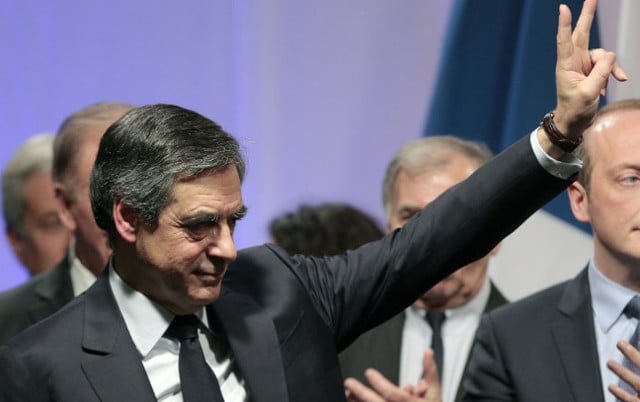Fillon opened himself up for more yet more stinging criticism on Monday when he told BFM TV interviewer Jean-Jacques Bourdin that he struggled to put money aside.
Fillon, whose campaign has wobbled over allegations of fake jobs and free deluxe suits, was immediately blasted and mocked on social media and became the top story on French news sites.
François Fillon : “Moi, est-ce que je mets de l’argent de côté ? Non” pic.twitter.com/jUDR4ymQHR
— BFMTV (@BFMTV) April 3, 2017
His words immediately trended on Twitter where some pointed out that if he couldn’t sort out his own money then he shouldn’t be put in charge of the country’s.
Others were simply angered and accused him of being “disconnected from reality”.
“Shameful. When you know that most people in France are deprived of healthcare, food and leisure,” said one angry Tweeter.
While Fillon’s words may not have been the worst thing a politician has ever said the problem for the candidate is that his wealth is there for all to see, as most French newspapers were quick to point out.
As an MP in Paris he earns €7,200 a month and also has access to an extra €5,770 (tax free) to cover his costs.
On top of that Fillon opened his own consultancy company in 2012 called 2F Conseil which according to Le Monde newspaper pulled in €750,000 in three years.
In the declaration of his assets to the High Authority for the Transparency of Public Life Fillon was shown to have several bank accounts and life insurance policies worth around €100,000, according to Le Parisien.
READ ALSO: Take a closer look at François Fillon's manor in rural France

And those outraged by his words on Monday were quick to point out that the candidate lives in a chateau, which along with his other properties, are believed to be worth €750,000.
That’s not to mention the hundreds of thousands of euros his wife earned as a parliamentary assistant over the years.
According to France’s Observation of Inegalities Fillon’s monthly salary is better than 96 percent of all French workers.
Fillon’s words might not have caused such an uproar if it wasn’t for the fact that his plans to turn around France’s struggling economy are based on imposing harsh austerity.
Fillon wants to save €100 billion over five years as well as raise the retirement age, hike the legal working week from 35 to 39 hours and ditch 500,000 public service posts.
The candidate has suffered in the polls in recent weeks and trails behind Marine Le Pen and Emmanuel Macron, but he still believes he can overcome the odds and make the second round run-off vote.
Despite his troubles he still enjoys strong support among his base, who like Fillon, believe he is the victim of a media witch-hunt and a politically-motivated smear campaign.
They believe he has the best programme to turn France around.




 Please whitelist us to continue reading.
Please whitelist us to continue reading.
Member comments